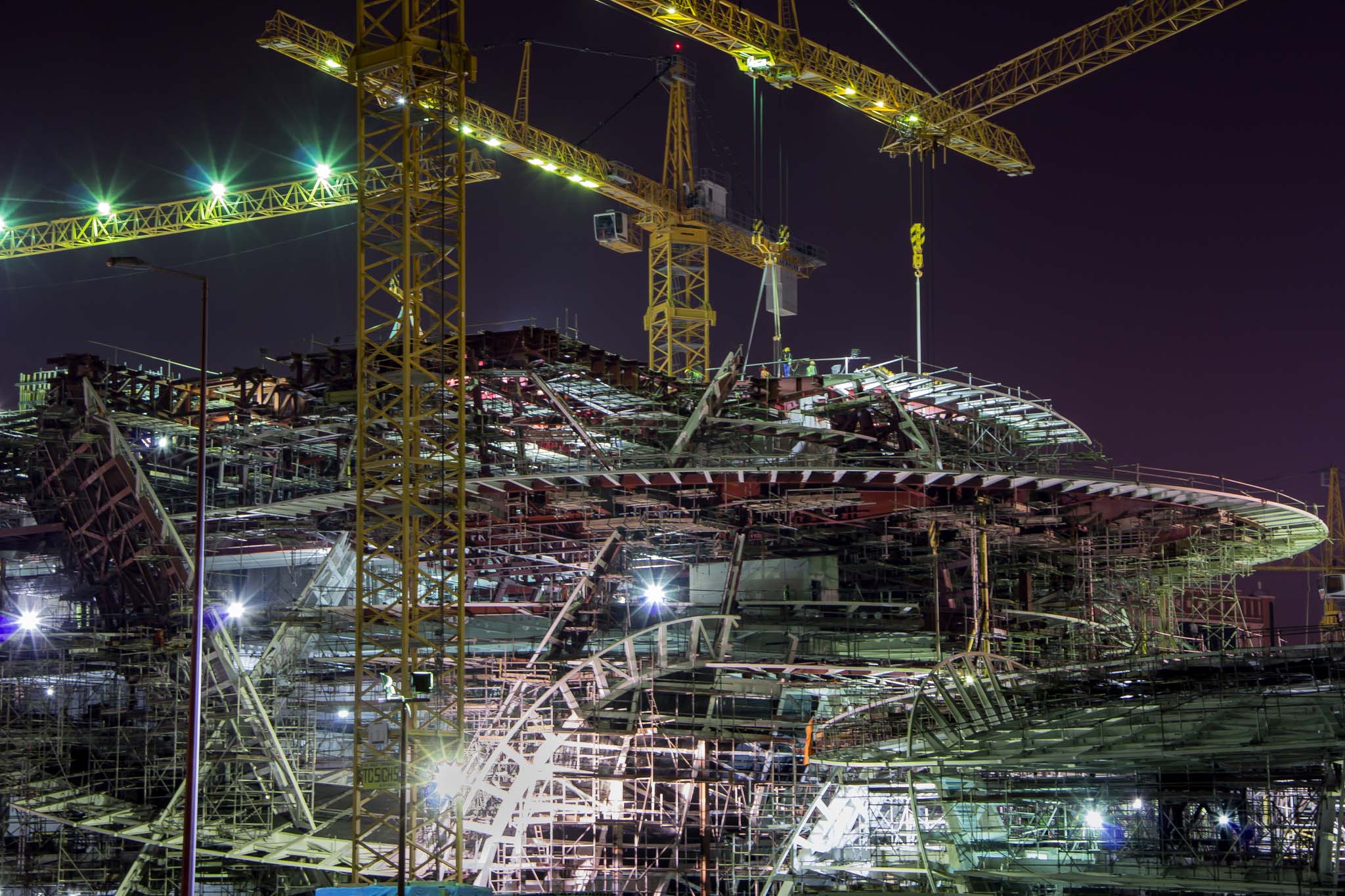
A new report has uncovered evidence of human rights abuses involving workers at two of Qatar’s most prominent construction projects.
In a report this week, the Guardian said it interviewed several men working on the Qatar National Museum and Doha Festival City shopping center whose employers had seized their passports, withheld their wages and prevented them from leaving the country.
The men worked for a labor supply company and said they were provided substandard housing and paid QR800 a month, plus an additional QR200 for food.
The report raises fresh questions about the responsibility of large multinational construction firms to police the labor practices of its subcontractors, as well as Qatar’s enforcement of its own laws.

The Guardian report was published the same day that the US government said the Qatar government has taken “limited action to prevent (labor) violations and improve working conditions.”
The assessment is contained in the US State Department’s chapter on the Gulf state, released in tandem with more than 175 other country reports on human rights practices around the world.
On Qatar, the US government says there were “continuing indications of forced labor” and that “enforcement problems were in part due to insufficient training and lack of personnel.”
‘If I had known…I definitely wouldn’t have come’
Qatar’s National Museum, located near the junction of the Corniche and Ras Abou Aboud St, is designed to resemble a desert rose. It is behind schedule after announcing a tentative 2016 opening and has yet to announce a new launch date.
The electrical and plumbing work for the museum is being led by a firm named BK Gulf, whose several shareholders include UK-based Interserve and Balfour Beatty.

In a common practice used on many construction sites, BK Gulf hired subcontractors and labor supply firms to help it complete its work.
Speaking to the Guardian, several of the employees of an unnamed labor supply firm said they were receiving a lower salary than what they were promised in their home country.
“If I had known I would only get 800 riyals, and 200 riyals for food, I definitely wouldn’t have come,” one man was quoted as saying.
The refrain is a common one among blue-collar expats in Qatar employed by subcontractors.
Qatar Museums did not respond to requests for comment.
In a statement to Doha News, an Interserve spokesperson said its remuneration rates are in line with comparable construction firms in Qatar.
However, the company added that it was investigating the allegations contained in the Guardian article.
“We are fully committed to supporting and protecting the health, safety and welfare of our employees and those working as part of our supply chain,” it said.
The statement also said the company does not seize its employees’ passports or prevent them from leaving the country.
Doha Festival City
However, a spokesperson declined to answer questions about how it enforces similar standards on its subcontractors, which the Guardian accused of forced labor at Doha Festival City.
The shopping center north of Qatar’s capital is one of several under-construction mega-malls and recently pushed back its opening date to February 2017.

The Guardian interviewed a man who said his employer refused to let him return to his home country after he tried to quit when his salary was cut from QR1,100 to QR900 a month, quoting him as saying:
“I have told the (manager) I want to go … but the company said, ‘There are no staff now so you have to stay here for two months and then you can go.’”
A spokesperson for Doha Festival City said it had no comment on the Guardian’s report.
Labor supply firms
Human rights experts say employees of small subcontractors and labor supply companies are particularly vulnerable to abuse for several reasons.
These smaller companies are more likely to be on site for shorter periods, have informal employment arrangements with workers and be in a financially precarious situation, which could cause them to cut corners if they start running out of work, Amnesty International researcher Mustafa Qadri previously told Doha News.
While it’s not clear what steps the lead contractors at Doha Festival City and the Qatar National Museum took to prevent abuse in their labor supply chain, other organizations have also had difficulty keeping abusive subcontractors off their sites.

Last month, Amnesty published a report that said employees of labor supply firms that sent workers to Khalifa International Stadium for the World Cup project were subject to human rights abuses including deceptive recruitment practices, retention of passports, inadequate accommodation, delays in payments of salaries as well as failure to provide and renew residence permits.
That’s despite local organizers having welfare standards in place that apply to all workers on its site.
Responding to Amnesty’s report, the Supreme Committee for Delivery and Legacy said the offending firms had been banned from its projects and had strengthened its oversight measures by hiring an independent auditor.
Thoughts?







